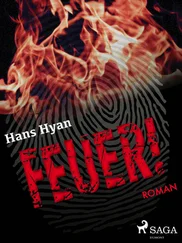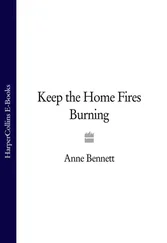“He regretted that,” the stranger said. “That you never knew him. He fought with my father; I heard all the stories of the great warrior Abu Parvaiz.”
“That wasn’t my father’s name. It was Adil Pasha.”
“It was his—” the man said something that sounded like numb digger . “That’s French for ‘jihadi name.’ Superhero name is how I think of it, though some of the brothers don’t like that. But, yeah. Your dad. When he entered the fight for justice he called himself Father of Parvaiz. That was his way of keeping you close. So anytime someone said his name — his enemies, with fear; his brothers, with love; his comrades, with honor — they were saying your name too.”
Horribly, Parvaiz felt tears come to his eyes in the company of a man who probably wouldn’t cry if you drove a tank over his legs. But the man didn’t seem to think any less of him for it. Instead he drew Parvaiz close, in a cologne-scented embrace, and said, “I’m glad I’ve found you, brother.”
Parvaiz went home that evening with the incandescence of a beautiful secret in his heart. He did all the cooking, didn’t take his plate off to the TV room while his sisters ate at the kitchen table, teased Isma about the American accent she would acquire in Massachusetts.
“What’s happened to you?” Aneeka asked, and he had the satisfaction of having a hidden corner of his life that his sisters didn’t know about.
||||||||||||||||||
Late that night, Farooq called.
“I’ve been thinking about you all day,” he said. “I’ve been thinking, why does the son of Abu Parvaiz seem to know so little about his father?”
Parvaiz had no words with which to answer this. The question had never been a question before. He’d grown up knowing that his father was a shameful secret, one that must be kept from the world outside or else posters would appear around Preston Road with the line DO YOU KNOW WHO YOUR NEIGHBORS ARE? and rocks would be thrown through windows and he and his sisters wouldn’t receive invitations to the homes of their classmates and no girl would ever say yes to him. The secrecy had lived inside the house too. His mother and Isma both carried an anger toward Adil Pasha too immense for words, and as for Aneeka, her complete lack of feeling or curiosity about their father had been the first definite sign that he and his twin were two, not one. His grandmother alone had wanted to talk about the absence in their lives, and part of their closeness came from how sometimes she would call him into her room and whisper stories about the high-spirited, good-looking, laughing-eyed boy she’d raised. But the stories were always of a boy, never of the man he became. Oh, something happened, I don’t know, she’d say whenever Parvaiz tried to find out who his father had become by the time his son entered the world.
“Because no one ever told me,” he said now.
“Do you want to know?”
“Of course.”
“Don’t answer so quickly. Once you know, you’ll have to think about what it means to be that man’s son. Maybe it’s easier never to think about him.”
He had always watched boys and their fathers with an avidity composed primarily of hunger. Whenever any of those fathers had made a certain kind of gesture toward him — a hand placed on the back of his neck, the word “son,” an invitation to a football match — he’d retreat, ashamed and afraid in a jumbled way that only grew more so as the years passed and as the worlds of girls and boys grew more separate; there were times he was not a twin but rather the only male in a house that knew all the secrets women shared with one another but none that fathers taught their sons.
“I think about him every day,” he said, whispering it.
“Good. Good man. What time are you done with work tomorrow?”
||||||||||||||||||
And so it began. At some point mid-morning, every morning, Farooq would text with a location: sometimes a kabab shop, sometimes a street corner — but more often than not, a betting shop on the High Road. That was usually where he was when Parvaiz finished work. Regardless of location, they’d talk and talk. Or Farooq would talk and Parvaiz would listen to those stories of his father for which he’d always yearned — not a footloose boy or feckless husband but a man of courage who fought injustice, saw beyond the lie of national boundaries, kept his comrades’ spirits up through times of darkness. Here was Abu Parvaiz, the first to cross a bridge over a ravine after an earthquake despite continuing aftershocks, to deliver supplies to those stranded on the other side; here was Abu Parvaiz using the butt of his Kalashnikov as a weapon when the bullets ran out; here was Abu Parvaiz dipping his head into a mountain stream to perform his ablutions and coming up with a beard of icicles, which lead to dancing on the riverbank as if he were Adil Pasha at a discotheque rather than Abu Parvaiz in Chechnya, whose every shake of the head produced the sound of wind chimes. Of all the stories this was the one that most clearly evoked the father he’d never known: the rushing stream, the dancing icicles, the men around him similarly braving the cold water so they could provide the jester-warrior Abu Parvaiz with an accompanying orchestra.
“The father every son wishes he had,” Farooq said.
“But I never had him as a father,” Parvaiz replied, tracing the lines of his own palm with the grenade pin — was it really? — Farooq had brought along to the kabab shop.
“Do you think he wanted the world to be as it is? No. But he saw it for what it is. And having seen it he understood that a man has larger responsibilities than the ones his wife and mother want to chain him to.”
To help Parvaiz understand those responsibilities, Farooq talked to him of history: the terror with which Christendom had watched the ascent of Islam, the thousand years of Muslim supremacy, which was eventually squandered by eunuchlike Ottomans and Mughals who had lost sight of the moral path, and then the bloodlust with which the Christians had avenged themselves for their centuries of humiliation; imperialism, with its racist underpinnings of a “civilizing mission,” followed by the cruel joke of pretending to “give” independence when really they were merely changing economic models via the creation of client states, their nonsensical boundaries designed to cause instability. There didn’t seem to be any part of the Muslim world Farooq didn’t know about — Pakistan and India and Afghanistan and Algeria and Egypt and Jordan and Palestine and Turkey and Chechnya and Kashmir and Uzbekistan. If ever Parvaiz started to lose his concentration, Farooq would swerve the conversation toward football (he supported Real Madrid, Parvaiz Arsenal, but they agreed on the greatness of Özil) or the tiniest details of Parvaiz’s life ( What did you have for dinner? Any interesting characters at the greengrocer’s? Let me listen to another one of your recordings — this time, I’ll guess what it is ) or the American reality TV show Farooq watched devotedly and that Parvaiz started watching too, in order to talk to him about it. But no matter what the topic of conversation, it always returned to the central preoccupation of Farooq’s life, the heart of all his lessons: how to be a man.
“It’s your sisters’ fault,” Farooq said one afternoon when they were sitting side by side in green bucket seats in the betting shop, watching a bank of screens with greyhounds racing around a track and sweating men in another time zone walloping a cricket ball in the direction of sponsors’ billboards. The volume was off, allowing for some pleasing moments of synchresis, such as when the dogs were released from their cages just as the front door was hurled open by a drunk, or when the strip light overhead started to buzz and the on-field umpire batted midges away from his face. Farooq had placed three phones on Parvaiz’s leg between knee and hip, and each time one pinged with a text message he’d glance down and go to the counter to place another bet. It was good training for Parvaiz to stop fidgeting, he said the first time he did it. Parvaiz always kept his legs so tensed up during those betting shop sessions he had trouble walking afterward. “They want you in the house, doing their shopping and mowing the garden, so they’ve tried to keep you a boy, a child in need of a mother. That older one particularly, you know what I mean? The one who claims to be a good Muslim, and thinks she has the right to decide whether or not you can live in your own house. Tell her it is written in the Quran, ‘Men are in charge of women because Allah has made one of them to excel the other.’ And by Allah’s law, you, not your women, dispose of your property.”
Читать дальше












